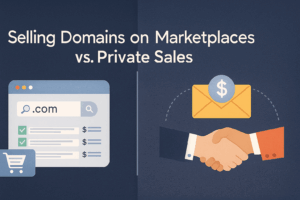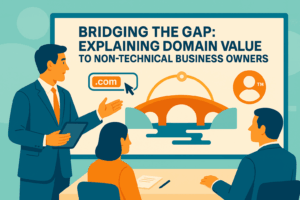On the Record: Calendar.com

In 2017, experienced entrepreneurs John Hall and John Rampton came together to create Calendar, a company that offers intuitive scheduling software for individuals and teams alike.
With Calendar’s virtual shop-front being its website, the founders opted to acquire Calendar.com soon after launching, upgrading from Calendar.co in the process. Since then, Calendar has built a reputation as a leading time management service and is used by over 80,000 businesses including Amazon, Samsung, and IBM.
In this edition of On the Record, I speak with co-founder John Hall, who is also a successful keynote speaker, author, and contributor to Forbes. We discuss the development of Calendar’s business, and how Calendar.com has been a major asset to Calendar’s operation.
Can you tell us about Calendar and why you created the service?
I need to discuss the domain I own!
Calendar is a time management tool that helps users align their schedules with their values. John Rampton, my business partner on Calendar, had the initial vision. He felt that there were many different types of scheduling tools, but not one all-in-one tool that did scheduling well while also helping people understand how they should spend their time.
It seems like Calendar is the perfect brand name for what you currently offer. Were there any other considerations for a brand name, or was it always Calendar?
Nope. From the start, we wanted to be positioned as an industry leader. If you are going to create an amazing calendar tool, what is better than Calendar and Calendar.com?
You switched to using Calendar.com a few months after launching. Why did you decide to acquire Calendar.com over sticking with Calendar.co?
A .com has a lot more credibility than a .co. You also tend to have better organic rankings with a .com so it helps overall with credibility and traffic. If you plan to be an industry leader and have a chance at getting the .com, then you want to go for it, in my opinion.
Calendar.com was a very hard domain to get, given it is by far the best one in the space. However, Rampton is a bigger player in the domain space and has solid relationships to get opportunities.
You don’t want to necessarily drain operating cash so a company can’t operate, but if you can pull a premium domain purchase off without hurting the company, it’s something you should do.
How did you go about valuing the domain to determine how much to pay? Did you consult anyone or use any domain sales data?
We used experience. Rampton had enough of a background in domain names to know what made the most sense price-wise. We also looked at projected growth for Calendar and what we could conservatively justify.
I see on Calendar.com that you have an impressive client list, including Amazon, Facebook, and Salesforce. Does owning Calendar.com make it easier to get your foot in the door?
Absolutely! The domain does make it easier to connect with big names. The credibility of Calendar.com helps to convert sales.
Owning Calendar.com is also extremely valuable for organic search. We work with an agency that is a master of organic search, so that combined with the domain puts us in an amazing situation.
How important is a premium domain to a SaaS product such as Calendar?
It’s vital. There are so many SaaS products out there that do similar things. Anytime you get a clear chance to show that you are more of an industry leader you should take it to stay ahead of the curve in the long run. A good domain name gives you that chance.
You and John Rampton have both been involved in businesses that use premium .COM domains. Why is a premium .COM domain so attractive for an entrepreneur?
It’s pretty simple. If you want to own the space and have the most market share, you should do your best to get things that scream that you are the leader. Premium domains can do that.
When you have domains like Relevance.com and Calendar.com, it just creates more opportunities to set up a company for long-term success with credibility and organic traffic.
What’s your advice for any entrepreneur thinking of buying a premium .COM domain to build a brand on it?
If you can obtain it and the financials can justify it, you should do it to amplify success in the long term.
What’s next for Calendar?
We will keep building out the tool and increasing our customer base. There are a lot of things related to the calendar that we can help our customers out with!
—
Thanks to John for taking part in On the Record. To find out more about Calendar, you can visit Calendar.com or follow @Calendar on Twitter. John can be found on Twitter @JohnHall.
Answers have been edited for clarity.



